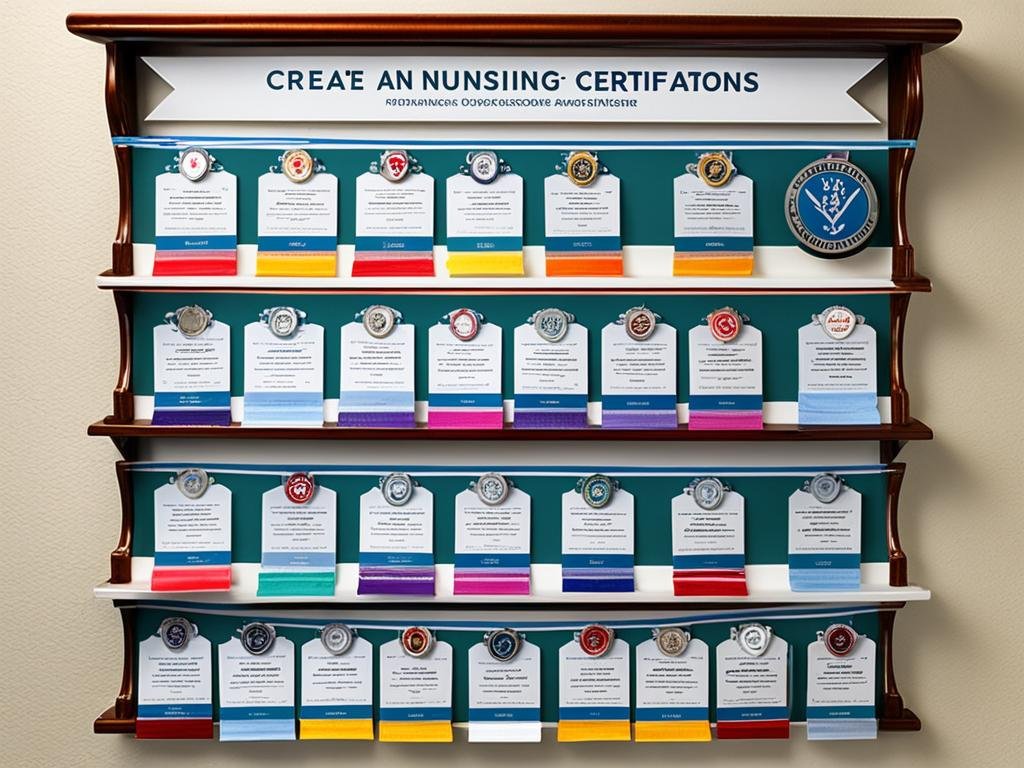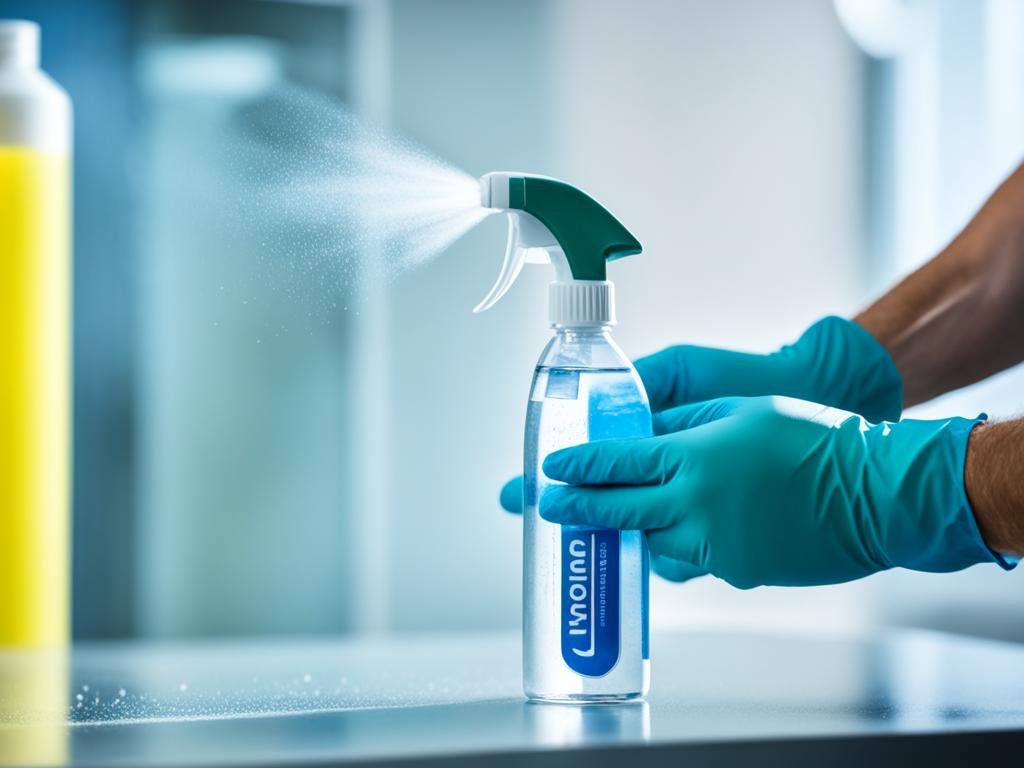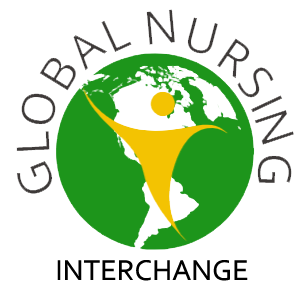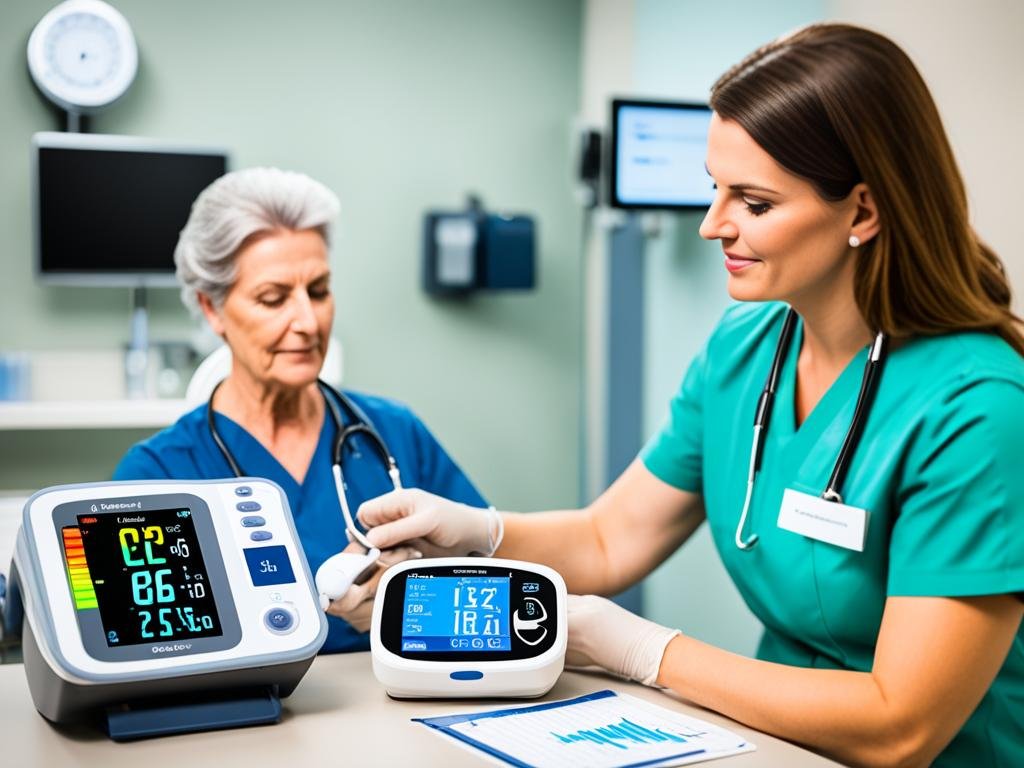Welcome to our comprehensive guide on essential nursing tips for delivering quality patient care. As healthcare professionals, we strive to provide the best possible medical service and ensure the well-being of our patients. In this article, we will cover a range of nursing tips, techniques, and healthcare advice that can help elevate your nursing skills and enhance the overall patient care experience.
Nursing is a dynamic profession that requires a diverse skill set. From mastering effective communication to continually expanding our knowledge through education, we play a crucial role in the healthcare ecosystem. Our commitment to providing exceptional patient care is what sets us apart.
Throughout this series, we will explore various nursing techniques and skills that can contribute to improved patient outcomes. We will discuss the importance of effective communication in establishing trust and building strong nurse-patient relationships. Additionally, we will delve into the significance of ongoing nurse education and its impact on delivering top-notch healthcare.
Our goal is to equip you with the knowledge and tools needed to implement best practices for patient safety. We will explore infection control measures, proper medication administration techniques, and the role of nurse advocacy in protecting patient rights.
By incorporating these nursing tips, healthcare advice, and techniques into your practice, you can make a lasting impact on the lives of those you serve. Together, we can enhance the quality of patient care and strive for excellence in our profession.
Importance of Effective Communication in Nursing
Effective communication plays a crucial role in nursing and is essential for building strong nurse-patient relationships. As healthcare professionals, it is our responsibility to ensure that we communicate with our patients in a clear, empathetic, and compassionate manner. By doing so, we can foster trust, promote patient engagement, and enhance the overall care experience.
One of the key communication techniques that we can employ is active listening. By actively listening to our patients, we demonstrate our genuine interest in understanding their concerns and needs. This not only helps us gather vital information but also makes patients feel valued and heard. Additionally, active listening enables us to provide accurate and personalized care, tailored to the individual needs of each patient.
Empathy is another essential aspect of effective communication in nursing. By empathizing with our patients, we put ourselves in their shoes, acknowledging their emotions, fears, and anxieties. This compassionate approach promotes trust and helps alleviate patient distress. Empathy allows us to establish a strong nurse-patient relationship, which is fundamental to providing comprehensive care and achieving positive outcomes.
Clear communication is equally important in nursing. We should strive to use simple and jargon-free language when explaining medical procedures, treatment plans, and medication instructions to our patients. This helps ensure that they understand the information fully and can actively engage in their own healthcare decisions. Taking the time to ensure clarity in our communication minimizes the risk of misunderstandings and enables patients to participate actively in their care process.
The Role of Effective Communication in Collaboration
Effective communication is not limited to the nurse-patient relationship alone; it also plays a critical role in interdisciplinary collaboration within the healthcare setting. By communicating clearly with other healthcare professionals, we promote a seamless flow of information, reduce errors, and enhance patient safety. Collaborative communication enables us to work as a unified team, aligning our efforts to provide comprehensive, patient-centered care.
Overall, effective communication is a cornerstone of nursing practice. By employing communication techniques such as active listening, empathy, and clear communication, we can form strong nurse-patient relationships, promote patient engagement, and optimize patient outcomes. In the next section, we will delve into the importance of continual education in enhancing nursing skills and knowledge.

Enhancing Nursing Skills through Continual Education
As healthcare continuously evolves, it is crucial for us as nurses to continually enhance our skills and knowledge through education. To stay at the forefront of the profession and deliver the highest quality of care, ongoing professional development is a must.
There are various opportunities available for nurse education that can help us broaden our horizons and deepen our understanding of nursing. Attending conferences allows us to learn from industry experts, exchange ideas with peers, and stay informed about the latest advancements in healthcare.
Furthermore, pursuing advanced certifications in specialized areas of nursing not only enhances our competence but also demonstrates our commitment to professional growth. These certifications not only validate our nursing knowledge but also open doors to new career opportunities and higher levels of responsibility.
Staying up-to-date with the latest medical advancements is crucial for us to provide evidence-based care. By regularly reading nursing journals, attending webinars, and participating in online forums, we can keep ourselves informed about the latest research, technologies, and best practices in nursing.

Continuous professional development has numerous benefits for nurses and the patients we care for. First and foremost, it enhances our nursing skills and expands our clinical knowledge, enabling us to provide the best possible care to our patients. It also boosts our confidence, allowing us to tackle complex situations with competence and ease.
Moreover, ongoing education promotes critical thinking and fosters a culture of lifelong learning within the nursing profession. By challenging ourselves to grow and evolve as nurses, we contribute to the advancement of the healthcare industry as a whole.
In conclusion, continuous education is a vital component of professional development for nurses. By actively seeking out opportunities for education, such as conferences, certifications, and staying up-to-date with the latest advancements, we can enhance our nursing skills and knowledge, ultimately improving patient care and outcomes.
Implementing Best Practices for Patient Safety
In the field of nursing, patient safety is of utmost importance. As dedicated healthcare professionals, it is our responsibility to ensure a safe and secure environment for our patients. By implementing best practices, we can actively contribute to the well-being and protection of those under our care.
Infection Control Measures
An essential aspect of patient safety is the implementation of effective infection control measures. By following strict protocols, such as proper hand hygiene, sterilization techniques, and the use of personal protective equipment (PPE), we can significantly minimize the risk of healthcare-associated infections. It is crucial to stay updated on the latest guidelines and practices recommended by reputable healthcare organizations and agencies.

Proper Medication Administration Techniques
Accurate and safe medication administration is another vital component of patient safety. It is our responsibility to ensure that medications are administered correctly, at the prescribed dose and time. This can be achieved by carefully verifying the patient’s identity, confirming medication orders, employing the rights of medication administration, and diligently monitoring for any adverse reactions or interactions. By adhering to best practices in medication administration, we can prevent medication errors and improve patient outcomes.
The Role of Nurse Advocacy in Protecting Patient Rights
As advocates for our patients, it is essential that we protect their rights and ensure their voices are heard. Patient advocacy involves actively engaging in open communication, respecting their autonomy, and addressing their concerns. By promoting patient-centered care and advocating for their best interests, we can create a culture of empowerment and patient safety within our healthcare institutions.
By incorporating these best practices into our daily nursing routines, we can foster a safer and more effective healthcare system. Patient safety should always remain at the forefront of our minds, and we must continually strive to provide the highest standard of care. Let us work together to create an environment where patient safety is prioritized, and our patients feel secure, valued, and well-cared for.
Conclusion
In conclusion, these essential nursing tips provide valuable insights into improving patient care. By prioritizing effective communication, ongoing education, and best practices for patient safety, nurses can significantly impact the quality of care they provide.
By continuously striving to enhance their nursing skills, nurses play a vital role in achieving optimal patient outcomes and promoting overall well-being. Remember, patient care is a collaborative effort, and as nurses, we have the power to make a positive difference in the lives of those we serve.
With effective communication techniques, including active listening and empathy, nurses can build strong nurse-patient relationships that foster trust and improve patient outcomes. Continuous education and professional development allow nurses to stay up-to-date with the latest medical advancements and provide the best possible care.
Implementing best practices for patient safety, such as infection control measures, proper medication administration techniques, and patient advocacy, further ensures a safe healthcare environment. By following these essential nursing tips and embracing the responsibility of providing quality patient care, nurses play a crucial role in the healthcare system.



